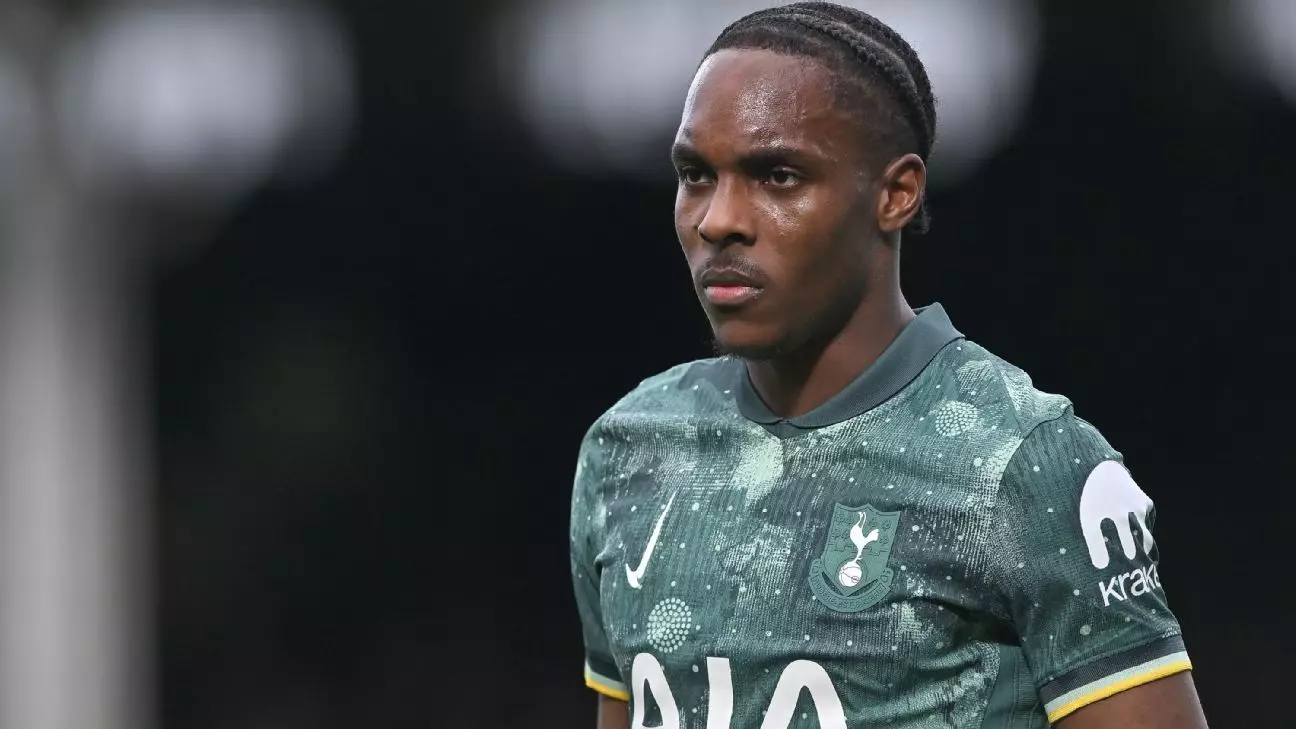As the football transfer window swings wide open, clubs across Europe are gearing up for significant tactical maneuvers. This isn’t just about swapping players; it’s a chess game for clubs striving to bolster their rosters with top-tier talent. Within this cutthroat arena, clubs like Bayern Munich and West Ham United are making headlines with their ambitious plans. What stands out is their striking ability to identify and pursue emerging stars, thereby transcending traditional recruitment strategies that typically focus on established names.
One of the more intriguing scenarios revolves around Bayern Munich and the fate of young prodigy Mathys Tel. The Bavarian giants are under pressure to finalize Tel’s loan agreement with Tottenham, which includes a €60 million option to buy. The urgency springs from the imminent transfer pursuits of Sporting CP’s Viktor Gyökeres and Athletic Club’s Nico Williams. Bayern’s predicament reflects a broader trend in football—youthful players who are yet to fully bloom are becoming hot commodities. The strategic gaming of these transfer windows will be pivotal for clubs if they aim to stay relevant in an increasingly competitive league.
West Ham’s Ambitious Pursuit of Young Talent
West Ham United is throwing its hat into the emerging talent pool, particularly with a keen focus on Sunderland’s promising midfielder Chris Rigg. Age 17 and already generating buzz, Rigg represents a calculated risk for West Ham, who are reportedly in the lead to capture him amidst interest from Tottenham Hotspur. The Hammers’ proactive approach exemplifies a shift in focus from merely seasoned players to investing in young prospects for long-term gain.
The club’s potential move for Rigg is just a part of a broader strategy that includes tracking talents like Lille’s Angel Gomes, who, while available for free this summer, remains undecided about a lucrative £100,000-per-week offer. The dynamics of recruitment in modern football are undoubtedly shifting; the merging of emerging and established players could fundamentally alter the playing field, ensuring that clubs like West Ham can compete against the traditional elite.
Competition for Defensive Strength
Meanwhile, developments aren’t limited to midfielders or strikers. Arsenal and Liverpool’s joint interest in Ajax’s Jorrel Hato signifies a united front underlining a growing race for defensive talents. Hato, merely 19, already displays versatility and skill, prompting serious attention from football powerhouses including Real Madrid, Chelsea, and AC Milan. The growing interest across clubs is indicative of a collective recognition that solid defensive structures are fundamental to success in football.
The clash for Hato accentuates a key point: as tactical astuteness in football evolves, clubs are increasingly investing in youth players who display both skill and adaptability. This trend bodes well for the future of football, as younger players are proving to be more than just additions; they are integral components of modern football strategies.
Goalkeeper Dynamics and Future Contracts
On the goalkeeping front, AFC Bournemouth’s intention to make Kepa Arrizabalaga’s loan permanent sheds light on the evolving expectations surrounding goalkeepers in the Premier League. The potential transfer hinges on Kepa accepting a pay cut, leading one to contemplate the financial gymnastics often required to finalize such agreements. This negotiation reflects the increased scrutiny and strategic planning around player wages—a topic many clubs are navigating to maintain fiscal responsibility.
Furthermore, talk of contract renewals for stalwarts like Boubacar Kamara at Aston Villa and Jarrad Branthwaite at Everton underlines another dynamic in player retention amidst transfer movements. Contracts have become pivotal not only for securing current talent but also for weaving a fabric of trust and commitment that can sustain club morale in turbulent times.
Management and Club Stability
As player acquisitions and departures dominate headlines, the stability offered by managerial contracts shouldn’t be overlooked. Crystal Palace’s ongoing discussions with their manager Oliver Glasner highlight the importance of having a reliable management structure integrated into a club’s long-term vision. Such stability is essential for clubs navigating the constant flux of player transfers, as it provides continuity and direction that can often prove just as critical as the players on the pitch.
The current atmosphere within European football signifies more than just transfer gossip; it’s a manifestation of tactical evolution where clubs are meticulously crafting their identities through shrewd management of youthful talents. Embracing this shift will be vital for clubs aspiring to etch their names into the annals of football history.

